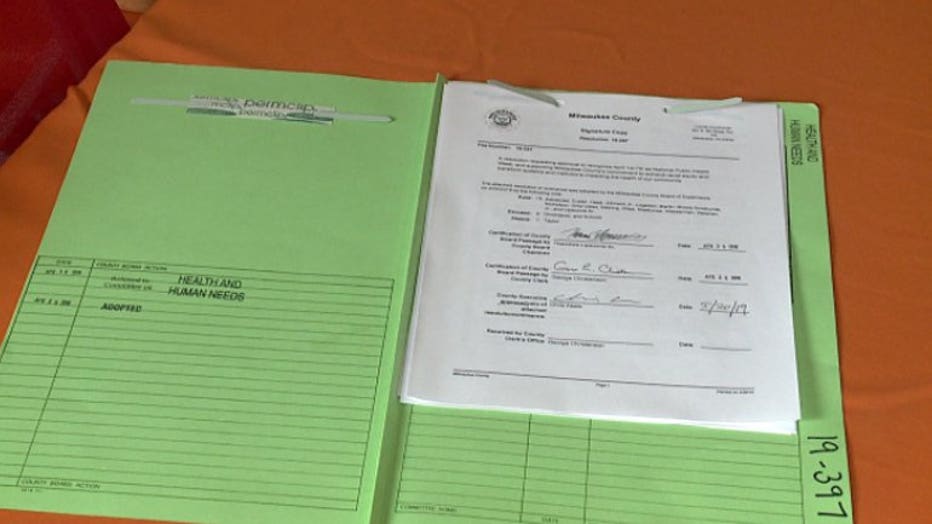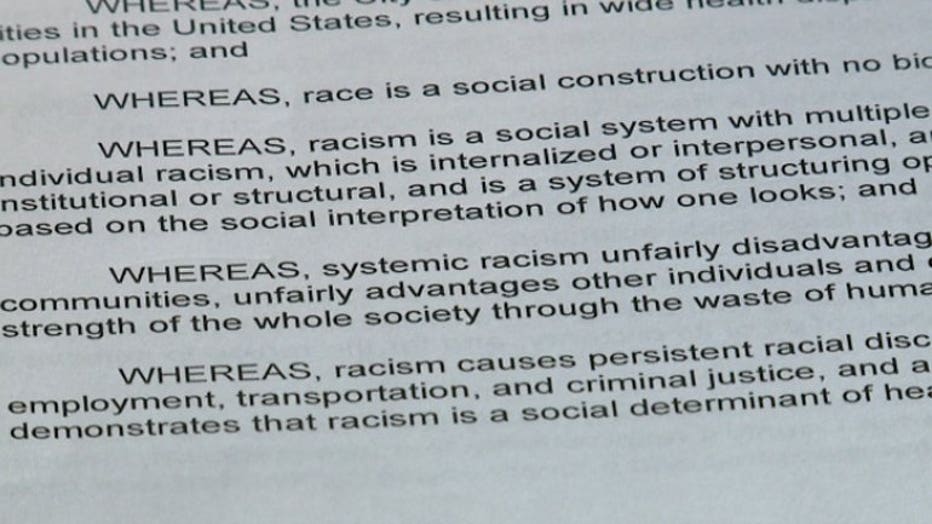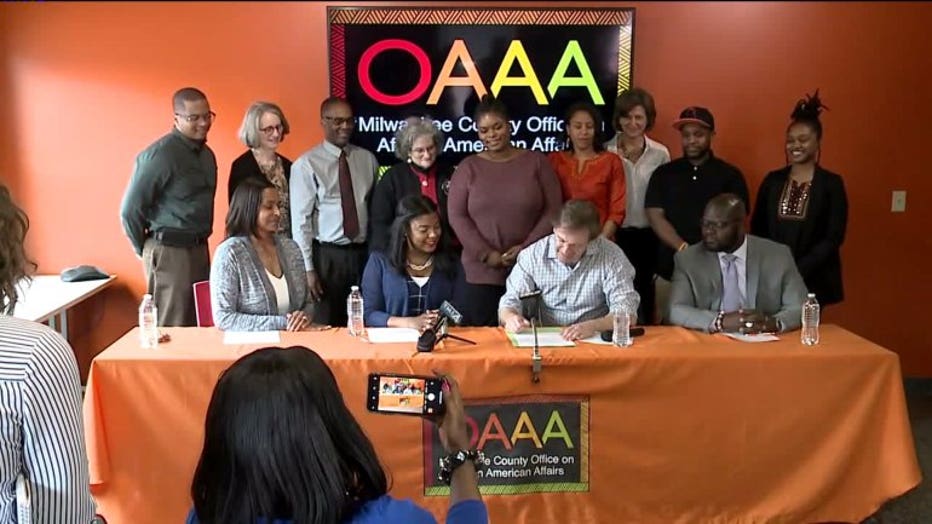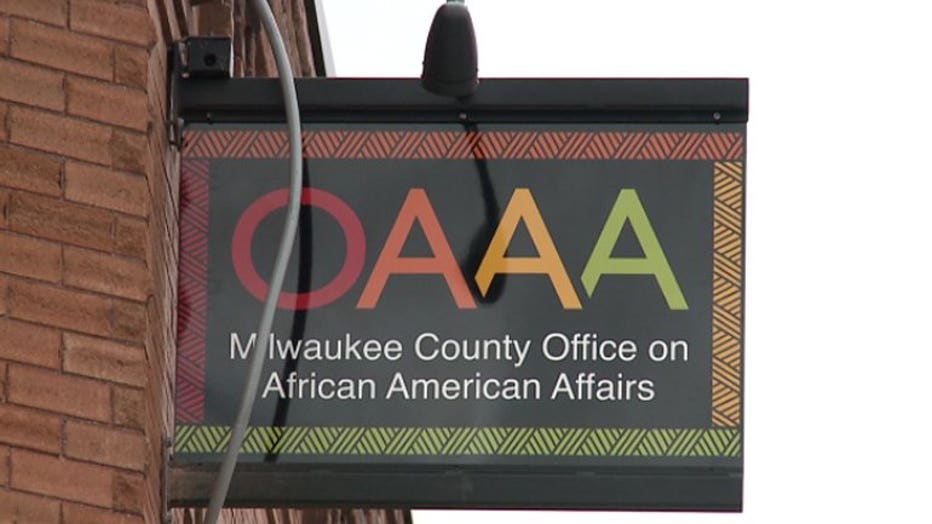'Just the beginning:' Chris Abele signs resolution declaring racism a public health crisis
Milwaukee County executive declares racism a public health issue
Milwaukee County executive declares racism a public health issue

Marcelia Nicholson
MILWAUKEE -- County Executive Chris Abele on Monday, May 20 signed a resolution declaring racism a public health crisis -- aimed at building on county efforts to advance racial equity practices and change systems and institutions that affect community health.
"Many people will see this as, 'Oh, they're just signing something today,' but really, this is just the beginning," said Marcelia Nicholson, Milwaukee County supervisor.
Supervisor Nicholson called the cause personal. She grew up in the 53206 ZIP code -- the most incarcerated ZIP code in the country.
"Growing up in 53206, I would walk home and I would hear gunshots. My parents would have to work two or three jobs to make ends meet, and that meant me and my siblings had to stay home and take care of ourselves," said Nicholson.


The resolution holds the county to: assess internal policies and procedures to make sure racial equity is a core element of the county; work to create an inclusive organization and identify specific activities to increase diversity; incorporate inclusion and equity, and offer educational training to expand employees' understanding of how racism affects people; advocate for policies that improve health in communities of color; and encourage other local, state and national entities to recognize racism as a public health crisis.


"We want every single person who works for the county, every decision they make, to be thinking, 'How can I make this decision in a way that is more effective and more likely to make a difference to these disparities?'" said County Executive Abele.
Since it was established in 2016, the Office on African American Affairs has worked to ensure racial equity is a core element of the county. By 2019, OAAA will have trained more than 5,500 employees in racial equity. The program ensures people at all levels are trained to help move the conversation into action and look at public and private systems through a racial equity lens.


